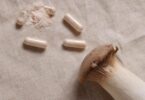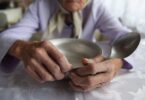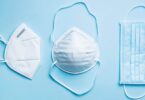One of the signs of a healthy heart is that it interacts properly with the other organs in the body, such as the lungs and kidneys, effectively pumping oxygenated blood.
Myocarditis should be suspected when healthy patients with no cardiac risk factors present with symptoms of heart failure or arrhythmias. ECG, cardiac enzymes, and cardiac imaging are not specific for myocarditis but may be diagnostic in the appropriate clinical setting.
Warning signs of a heart attack include:
1. pain in the center of the chest.
2. a feeling of overwhelming pressure in the chest.
3. pain that lasts more than a few minutes.
4. pain that radiates to the shoulder, neck, arms, back, or jaw.
5. nausea, dizziness or shortness of breath.
Pericarditis is a heart problem that can cause chest pain. The pericardium is the name for the layers of tissue that surround the heart. Pericarditis occurs when the pericardium becomes infected and inflamed. When the pericardium swells it can rub against the heart, causing chest pain. It is a disease that is usually self-limited, that is, it heals on its own, over between 2 and 6 weeks. It is important that the patient rests. Treatment of the symptoms of malaise, arthromyalgia and chest pain will be treated with aspirin or non-steroidal anti-inflammatory drugs.
How to differentiate pericarditis from a heart attack?
While in infarction the ascended ST is convex (as if pushed from below), in pericarditis the ST is concave and is classically said to have a garland morphology (as if pulled from above).
It is not recommended to have a healthy heart to consume fried foods, processed foods and red meat in excess. These are the main enemies of a healthy heart and that can lead to serious cardiovascular disease. Also, the stimulant effects of high caffeine intake can cause your heart to beat faster. Unfortunately, it can also cause a disturbance in the heart rhythm, called atrial fibrillation. This disorganized heart rhythm occurs in the upper chambers of the heart.
A varied and balanced diet is recommended in which fruits, vegetables, vegetables, fish, lean meat, olive oil, cereals and skimmed dairy products predominate. And reduce or avoid salt, sugars and alcohol. Practice exercise every day adapting it to your physical condition. To benefit your heart, experts recommend getting at least 30 minutes of moderate aerobic exercise on most days with a goal of 150 minutes a week.
Foods that help reduce cholesterol and clean the arteries are: asparagus, avocado, oily fish, flax seeds, walnuts and tomato.
https://www.shaio.org/como-saber-si-tengo-un-corazon-sano
https://cuidamex.com/como-saber-si-mi-corazon-esta-sano-o-enfermo/
https://ecocardio.com/documentos/biblioteca-preguntas-basicas/preguntas-al-cardiologo/1066-ecg-en-pericarditis.html#:~:text=Mientras%20que%20en%20el%20infarto,tirasen%20de%20%C3%A9l%20desde%20arriba).









